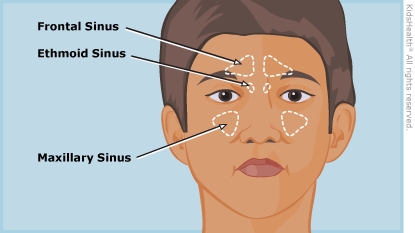A sinus infection (also called sinusitis) is an infection in one or more of the sinuses. Sinuses are hollow spaces in the cheekbones, in the forehead, and behind the nose. The infection is usually caused by bacteria or a virus (types of germs). Most people who have a sinus infection had a cold first.
Treatment for a sinus infection may include antibiotics, allergy medicines, saline (saltwater) sprays or washes, and steroid (medicine to ease swelling) nasal spray.
Follow these instructions to care for your child.



Your child:

Your child has:

How does a sinus infection happen? When your child or teen has a cold or allergies, nasal passages and sinuses become swollen and make more mucus than usual. A sinus infection is when mucus gets infected with bacteria, viruses, or fungi (types of germs).
Do kids with a sinus infection always need antibiotics? Some sinus infections get better on their own. Depending on symptoms and how long someone has been sick, health care providers may not prescribe antibiotics right away.
What are the symptoms of a sinus infection? Kids with a sinus infection may have a cough, a runny nose, fever, a sore throat, bad breath, a headache, and nausea or vomiting.